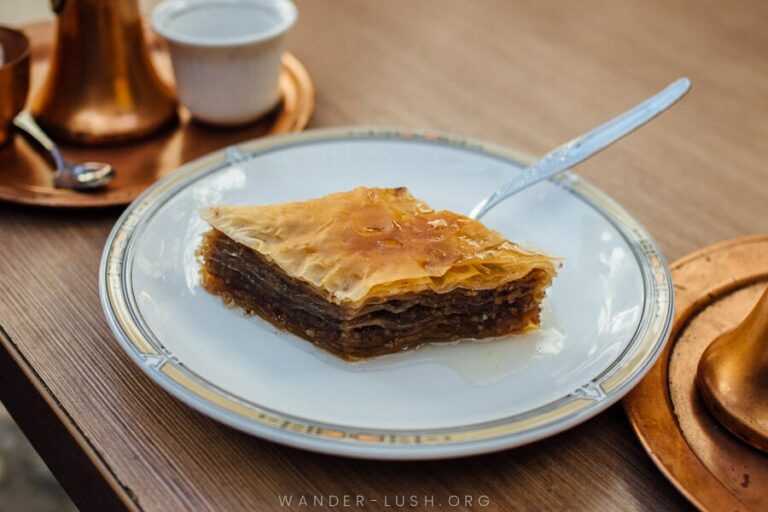Introduction: Bosnian cuisine
Bosnian cuisine is a unique blend of Eastern and Western culinary traditions, influenced by the country’s diverse history and geography. The cuisine is characterized by its hearty meat dishes, rich soups, and flavorful stews, typically prepared with fresh local ingredients and infused with traditional spices and herbs. Bosnian cooking is also known for its complex and time-consuming preparation methods, which require attention to detail and patience.
Culinary history of Bosnia
Bosnian cuisine has a rich and diverse history that reflects the country’s cultural and ethnic heritage. The cuisine has been shaped by the Ottoman Empire’s influence, which introduced new ingredients and cooking techniques, such as the use of spices and slow-cooking methods. The Austro-Hungarian Empire also left its mark on Bosnian cuisine, introducing new dishes and culinary styles, including pastry-making and baking.
Influences on Bosnian cuisine
Bosnian cuisine has been influenced by a range of cultures, including Turkish, Greek, Mediterranean, and Central European. The cuisine is characterized by its use of fresh local ingredients, such as lamb, beef, chicken, fish, vegetables, herbs, and spices. Bosnian cooking also incorporates traditional techniques, such as roasting, grilling, frying, and stewing, which are used to create rich and flavorful dishes.
Key ingredients in Bosnian dishes
Bosnian cuisine relies on fresh local ingredients, such as lamb, beef, chicken, fish, vegetables, and herbs. Some of the key ingredients used in Bosnian dishes include onion, garlic, paprika, cumin, coriander, mint, parsley, and dill. Bosnian cooking also makes use of dairy products, such as yogurt, cheese, and sour cream, which are used to add richness and flavor to dishes.
Traditional cooking methods in Bosnia
Bosnian cuisine is known for its time-consuming and labor-intensive preparation methods, which require patience and attention to detail. Some of the traditional cooking methods used in Bosnia include roasting, grilling, stewing, and frying. Slow-cooking methods, such as cooking in a clay pot or using a wood-fired oven, are also commonly used in Bosnian cuisine to create rich and flavorful dishes.
Unique spices and seasonings in Bosnian cooking
Bosnian cuisine is known for its use of traditional spices and seasonings, which add depth and complexity to dishes. Some of the unique spices used in Bosnian cooking include paprika, cumin, coriander, and mint, which are used to add flavor to meat dishes and stews. Herbs, such as parsley, dill, and thyme, are also commonly used in Bosnian cooking to add freshness and aroma to dishes.
Popular Bosnian dishes and their preparation
Bosnian cuisine is known for its hearty and flavorful dishes, which are typically prepared with fresh local ingredients and traditional cooking methods. Some of the most popular Bosnian dishes include cevapi, a grilled meat dish served with flatbread and onions, and burek, a savory pastry filled with meat, cheese, or spinach. Other popular dishes include dolma, a stuffed vegetable dish, and bosanski lonac, a meat and vegetable stew.
Conclusion: The art of Bosnian cooking
Bosnian cuisine is a rich and diverse culinary tradition that reflects the country’s cultural and ethnic heritage. The cuisine is characterized by its use of fresh local ingredients, traditional cooking methods, and unique spices and seasonings. Bosnian cooking is also known for its complexity and time-consuming preparation methods, which require patience and attention to detail. Whether you’re a seasoned cook or a novice in the kitchen, Bosnian cuisine offers a wide range of delicious and flavorful dishes to explore.

